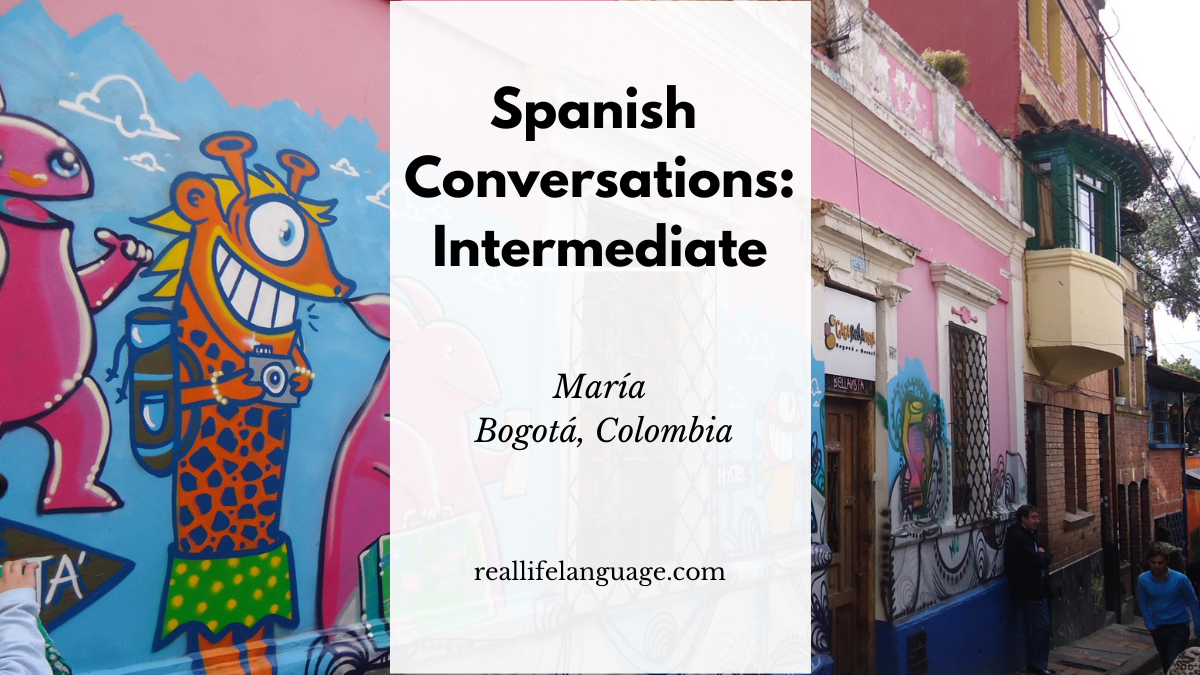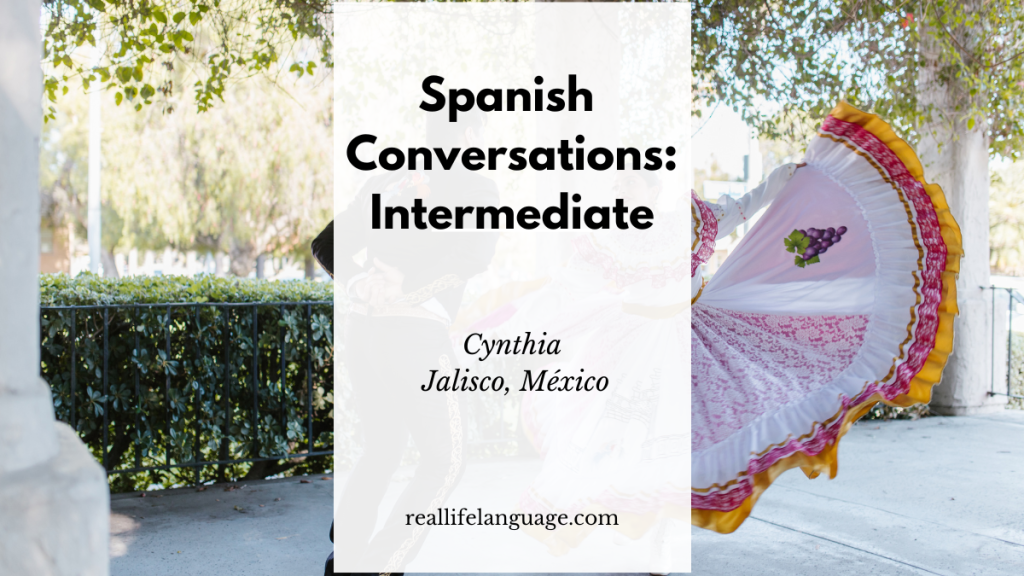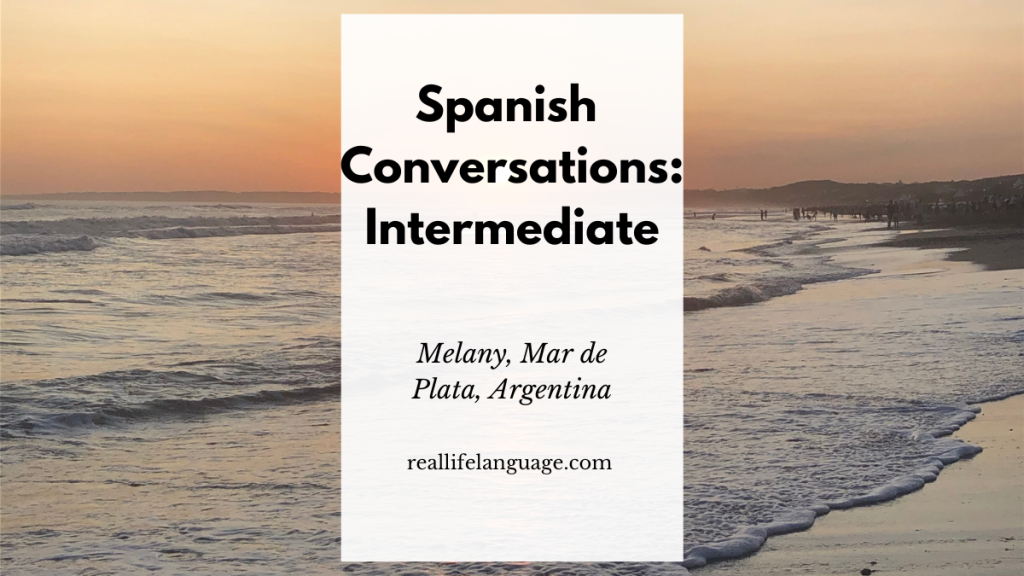 This article draws on a relaxed conversation to help learners learn Spanish by listening to natural speech and practising common questions, phrases, and vocabulary. The narrator shares María’s stories from Bogotá — a romantic evening in La Candelaria, animal rescue work, home projects, small-business attempts, and reflections on friendship and leisure. Use these anecdotes as a springboard for comprehension and speaking practice.
This article draws on a relaxed conversation to help learners learn Spanish by listening to natural speech and practising common questions, phrases, and vocabulary. The narrator shares María’s stories from Bogotá — a romantic evening in La Candelaria, animal rescue work, home projects, small-business attempts, and reflections on friendship and leisure. Use these anecdotes as a springboard for comprehension and speaking practice.
Outline
- Unforgettable moments: romance in La Candelaria
- Volunteering and rescuing dogs
- Vacations turned into home projects and a small food business
- Future plans, retirement, and what friendship means
- How people spend free time in Bogotá
- Practical vocabulary and phrases for learners
1. An unforgettable night in La Candelaria
María recalls a vivid memory: after a few months of an on-and-off relationship, they walked through La Candelaria and past Plaza Bolívar. There, he hugged her and said,
“I want you to be my girlfriend and I want you to be with me.”
The moment stood out for its romanticism even though the relationship later faded. Learners can practise telling past events using simple past and imperfect forms to convey both the moment and the aftermath.
2. Rescuing dogs: practical language for volunteering
One weekend María joined other rescuers to save three dogs — a mother and two puppies — that were sick, flea-ridden, and malnourished. They transported them to a shelter and collected donations. This story provides useful verbs and phrases related to rescue work and charity.
Useful verbs
- rescatar — to rescue
- recoger — to pick up
- llevar — to take (to a place)
- donar — to donate
3. Vacations: home repairs and a soup business
María spent her last vacation fixing the apartment: organising drawers, making lists for painting and flooring, and arranging repairs like lighting. She also experimented with a small business selling cream soups in jars (pumpkin with carrot and ginger, tomato, lentil, broccoli with rosemary). Packaging and shelf-life issues forced her to pause, but she hopes to restart with help.
Business and household phrases
- organizar los cajones — to organise the drawers
- hacer un presupuesto — to make a budget
- envasar en frascos — to package in jars
- ¿Cuánto dura? — How long does it last?
4. Future plans, retirement, and friendship
At 57 María already has a pension but chooses to remain active: teaching, creating, and managing projects. She describes friendship as based on lealtad and respeto, admiring a lifelong friend for structure and integrity. These reflections are great prompts to practise expressing hopes, plans, and values.
5. Leisure and community life in Bogotá
People in María’s city love going out: dining, dancing, bars, theatre, concerts, craft markets, and shopping. Cultural offerings include ballet, zarzuela, and classical music seasons. Use these topics to practise asking about preferences and comparing leisure activities.
6. Practical phrases and exercises to learn Spanish
Here are ready-to-use questions, responses, and short exercises inspired by María’s conversation.
- Questions to practise:
- ¿Qué hiciste el fin de semana? — What did you do last weekend?
- ¿Qué hiciste en las vacaciones? — What did you do on your last vacation?
- ¿Cómo es tu amistad con…? — What is your friendship with … like?
- Useful replies:
- Fui a rescatar perros y recogimos a una madre y dos cachorros. — I went to rescue dogs and we picked up a mother and two puppies.
- Arreglé el apartamento y hice una lista de reparaciones. — I fixed the apartment and made a list of repairs.
- Mi amistad se basa en el respeto y la admiración. — My friendship is based on respect and admiration.
- Speaking exercise: Retell one of María’s stories in the past tense, then change the subject to yourself. Record and compare.
- Listening exercise: Listen for place names and cultural words (La Candelaria, Plaza Bolívar, zarzuela).
Conclusion
María’s anecdotes provide authentic material to learn Spanish in context: romance, volunteering, household projects, entrepreneurship, and community life. Practise the highlighted verbs, questions, and phrases, and retell the stories in your own words. Regularly using real conversations like this will help build fluency, vocabulary, and confidence as learners learn Spanish.
100s of videos to learn Spanish:

